‘I was their trophy’: Man, 19, held hostage in Gaza after being captured at Nova music festival tells of harrowing ordeal at hands of Hamas terrorists – including operation by ‘scared’ doctor performed without anaesthetic
A 19-year-old former Israeli hostage – who was operated on without anesthesia by a Gaza doctor – has urged the world not to forget the brutality of the October 7 terror attacks.
Itay Regev – who was kidnapped from a peace music festival along with his sister Maya Regev, 21, and their 21-year-old friend Omer Shem Tov – cursed the world for not doing more to rescue the remaining hostages.
On October 7, Itay, Maya and Omer were chased by nine terrorists who ruthlessly shot at them as they fled the Nova music festival.
After being shot in both legs, he was tied up, loaded into a pickup truck and paraded through the Gaza Strip as Gazans jeered and cheered him.
He was then smuggled through the underground Hamas terror tunnels and taken to a hospital where he was operated on without anesthesia by a “sweaty and scared” doctor.
Israeli Itay Regev pictured in London describing his ordeal at the hands of Hamas
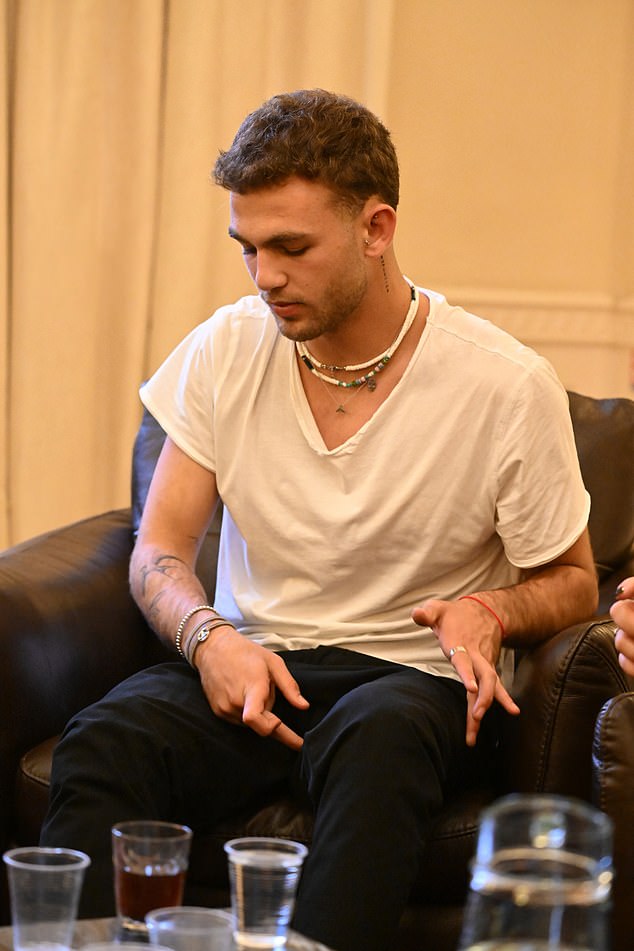
After being shot in both legs, he was tied up, loaded into a pickup truck and paraded through the Gaza Strip as Gazans jeered and cheered him.

He was then smuggled through the underground Hamas terror tunnels and taken to a hospital where he was operated on without anesthesia by a “sweaty and scared” doctor.
After the operation, terrorists disguised Itay as a corpse and later in a burqa before taking him to a safe house.
Speaking about his experiences as a hostage, he said: ‘Inside Gaza I was kept in a locked room and I could not see the sky.
‘I was given cans of food and occasionally some pita bread to eat.
“My detainees would torture me by telling me that other hostages had died in IDF airstrikes and that the Israeli government did not care about me.
“And every day, at every moment, I thought about my family and my parents.”
Itay – who was held captive in three different homes in Gaza until he was finally released after 54 days – said he was filled with hatred for Hamas and those who held him captive.
He said: ‘A family who held me captive had their children come and look at me and point to my wounds.
‘I felt like I was their trophy and that no one in Gaza cared about me.
“Nobody I’ve met is innocent.”
Speaking to the BBC, he said he had come to terms with the fact that he could be killed if captured.
Both he and his sister were shot in the legs while being held hostage. He was operated on without anesthesia or painkillers by a ‘concerned doctor’.
He told the BBC he was ordered to be quiet or they would ‘kill me’, all the while suffering ‘more beatings, slaps in the face, spitting’.
Itay was separated from his sister, who also underwent surgery. Her dangling foot was reattached, but sideways. She was unable to walk when released and is currently undergoing extensive rehabilitation on her leg.
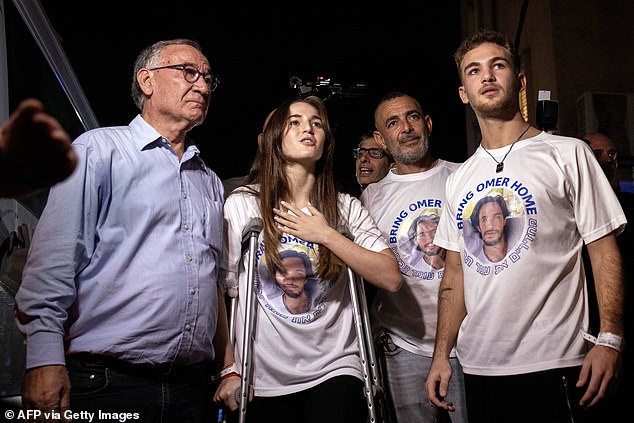
Maya and Itay Regev are pictured arriving at their family home in the city of Herzliya near Tel Aviv on December 4, 2023, after their release from captivity by Hamas in the Gaza Strip
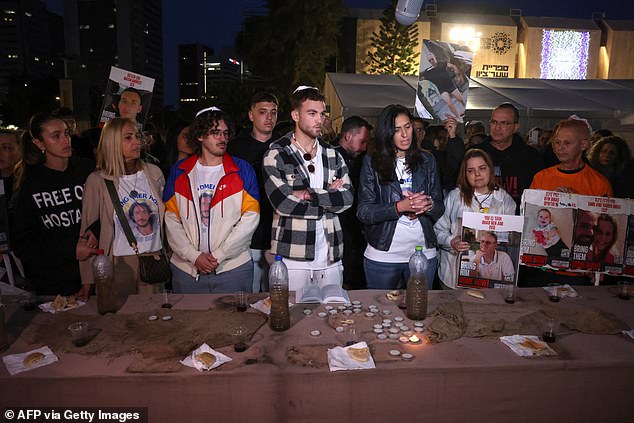
Former hostage Itay Regev pictured attending a protest by supporters and families of the Israeli hostage held in Gaza since October 7, gathered around a symbolic Shabbat dining table
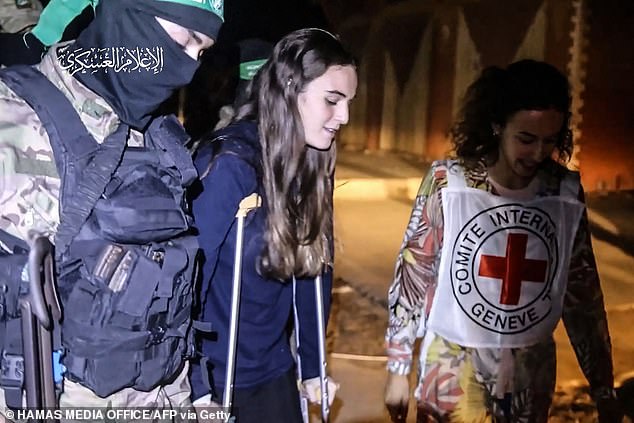
An image from a handout video released by the Hamas Media Office shows a Hamas fighter and a Red Cross medic who accompanied Maya when she was released in November
Their father Ilan Regev previously shared a chilling phone call he received from Maya when she and her brother were kidnapped.
In an interview with CNN he played the heartbreaking call where she says, “Daddy, they shot me, they shot me!” Maya said in a phone call to her father on Oct. 7, amid the gunfire. “He’s killing us, daddy, he’s killing us.”
Ilan was heard telling Maya to give her location and find a place to hide, saying, “I’m coming.”
He jumped into his car from his home in Herzliya, near Tel Aviv, and sped south to the festival site, where he was denied entry.
In the interview, Ilan can be seen breaking down as he becomes overwhelmed with emotions as he listens again to his daughter’s heartbreaking cries and pleas.
Hamas militants killed an estimated 1,200 people and kidnapped 250 others in the October 7 attack that sparked the war.
On February 16, Hamas claimed that “many” Israeli hostages have been killed in four months of bloody warfare as the conflict in the southern Levant shows no signs of ending.
Abu Obeida, the spokesman for the group’s armed wing, said in an audio message that the remaining hostages are living in extremely difficult conditions as Israeli forces continue devastating attacks on the Gaza Strip.
It comes as Israeli Prime Minister Benjamin Netanyahu prepares to press ahead with a “strong” operation in the southern city of Rafah to achieve a “complete victory” over Hamas.
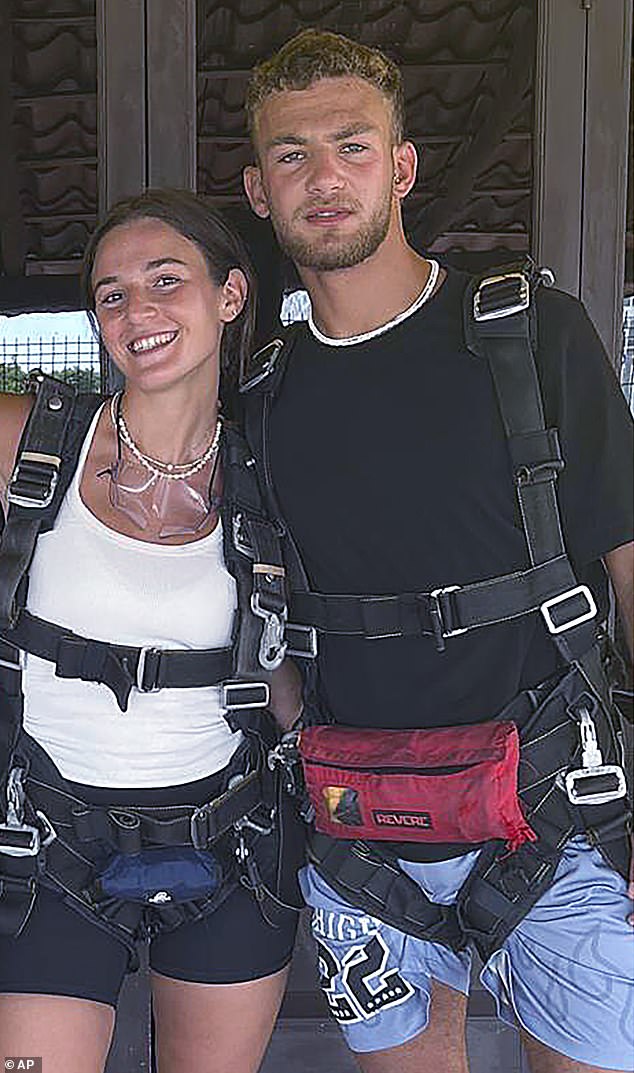
Both Itay and his sister Maya (pictured) were shot in the legs while being held hostage
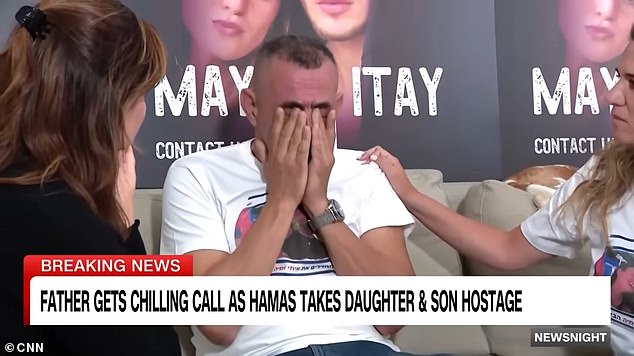
Their father Ilan Regev previously shared a chilling phone call he received from Maya when she and her brother were kidnapped
Despite overtures toward a peace deal in recent weeks, Netanyahu last week roundly rejected Hamas’s new terms for a ceasefire and today brushed off international pressure to help create an independent Palestinian state.
But concerns are growing for the well-being of some 1.4 million Palestinians currently sheltering in Gaza’s southernmost city, as Israeli forces prepare to move through the city, ostensibly in pursuit of objectives to target Hamas. to flee and return the hostages taken to Gaza on October 7.
The brutal conflict in Gaza has led critics and families of hostages from Israel to pressure the Israeli government to agree on the terms of their release.
There are believed to be around 130 hostages left in Gaza following the October 7 Hamas attack.
While a minority of voters in Israel believe the IDF is using too much force in Gaza, stories of dire conditions shared by Israeli hostages returning from captivity during the November ceasefire have given the movement strength.
Some who returned said Israel’s siege had worsened conditions for the hostages, suggesting that a siege of Gaza City curtailed food and water supplies in the first few days of the conflict.
